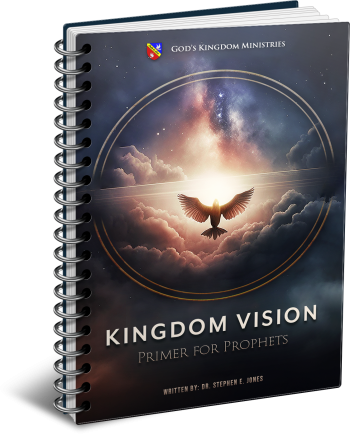Latest Posts
View the latest posts in an easy-to-read list format, with filtering options.

These are basic biblical themes that are necessary in order for prophets to understand what the biblical prophets have already prophesied.
Category - General

Those who bear fruit are, by definition, God’s chosen people (or “My people”). In Romans 11:7, Paul calls them “the election” (KJV), or “chosen” (NASB), from the word eklogay.
In Exodus 5:1, Moses told Pharaoh, “Let My people go,” without specifically defining who “My people” were. Earlier, in Exodus 4:22, God said, “Israel is My son,” but again, God did not specifically define those who are part of Israel.
Most have defined these terms genealogically, as I did for many years, having grown up in the church among those who taught this. To become “My people,” however, was something that the Israelites were supposed to achieve, not something that they were naturally from the day they were born. In Exodus 19:5 we read,
5 Now then, if you will indeed obey My voice and keep My covenant, then you shall be My own possession [or “peculiar treasure,” KJV] among all the peoples, for all the earth is Mine.
This makes their position as “My own possession” (i.e., God’s people) conditional upon their obedience—specifically, upon their ability to keep their promise to obey His law. If being God’s own possession had been based on their genealogy from Abraham, then the only condition would have been that they have the right set of parents.
During their 40 years in the wilderness, they failed virtually every test of faith and obedience. So at the end of 40 years, God made a second covenant with them in the plains of Moab (Deut. 29:1). This covenant did not depend upon man’s ability to keep his vows to God. It depended only on God’s ability to keep His promise to make them His people.
So Moses gathered the people to hear the terms of this covenant, as we read in Deut. 29:12, 13,
12 that you may enter into the covenant with the Lord your God, and into His oath which the Lord your God is making with you today, 13 in order that He may establish you today as His people and that He may be your God, just as He spoke to you and as He swore to your fathers, to Abraham, Isaac, and Jacob.
It seems that even after 40 years, those Israelites were not yet His people, nor was Yahweh their God. The first covenant proved to be inadequate, because men could not fulfill their vows adequately, which they had promised in Exodus 19:8. Hence, a new covenant was needed, one that would actually work, and it was patterned after the oath that “He swore to your fathers, to Abraham, Isaac, and Jacob.”
We know that the covenant and oath that He swore to Abraham was the basis of what is later called the New Covenant. In other words, it was God’s vow to them. This oath was not applicable to those Israelites alone but to the whole earth. Deut. 29:14, 15, says,
14 Now not with you alone am I making this covenant and this oath, 15 but both with those who stand here with us today in the presence of the Lord our God and with those who are not with us here today.
Those Israelites gathered at the Mount, along with “the alien” (Deut. 29:11) were all required to hear the terms of this covenant, because it applied to all of them equally. And not just those present but also those not present. I understand this to include all genealogies in every generation to the end of time. It is God’s vow to make everyone “My people,” although the fulfillment of this oath would not be complete until the Creation Jubilee at the end of time.
Most of those Israelites who witnessed God’s oath did not come into full obedience immediately. If they had faith in God’s promise (or oath), they would have been justified by Abrahamic faith, but (like us today), they would not have been perfected immediately. Yet God promised to make them His people, so this was only the start of a long process, the path which was outlined in the three main feast days: Passover, Pentecost, and Tabernacles.
The Israelites occupied the land of Canaan for more than six centuries before the exile to Assyria and Babylon. Hosea was a prophet to the northern House of Israel, who spoke of the Israelites being cast off. God spoke of them as being “not My people” (Hosea 1:9). The context shows that God was about to divorce Israel (Hosea 2:2), which was a change of legal status from being “My people” (Ammi) to “not My people” (Lo-ammi).”
It is clear from this that their status as “My people” was not a matter of genealogy but of faith. Otherwise, if God wished to cast them off and make them Lo-ammi, He would have had to alter their genealogy.
When the Assyrians finally conquered Israel and deported the Israelites to the land of Gamir, their genealogy remained unaltered and unaffected. They only suffered a change of legal status. Being divorced from God (Jer. 3:8), they were reduced to the same legal status as all other nations that were not married to God.
Notice that being “My people” was not built upon their genealogy. Neither would their return to being God’s people depend upon their genealogy. The terms were set forth in the covenant with Abraham and later with the second covenant under Moses. The New Testament explains this fully as a matter of Abrahamic faith (Rom. 4:21, 22).
The House of Israel, led by the tribe of Ephraim, was the first to lose its legal status, but the House of Judah was no different. Jer. 7:15 says that it would be only a matter of time before Judah suffered the same fate as Ephraim/Israel,
15 I will cast you out of My sight, as I have cast out all your brothers, all the offspring of Ephraim.
Again, the prophet says in Jer. 7:23, 24,
23 But this is what I commanded them, saying, “Obey My voice, and I will be your God, and you will be My people, and you will walk in all the way which I command you, that it may be well with you.” 24 Yet they did not obey or incline their ear, but walked in their own counsels and in the stubbornness of their evil heart, and went backward and not forward.
Being “My people” depended upon their obedience to “My voice.” Hence, neither Jews nor Israelites can call themselves God’s people apart from responding to God’s voice. Why? Because “faith comes from hearing, and hearing by the word of Christ” (Rom. 10:17). To hear is to obey. There is no hearing without obedience.
Seeing as how both Israel and Judah had failed to be obedient, the question arises: How can they (and others) become God’s people? Paul answers this question in Romans 11.
Rom. 11:1, 2 begins,
11 I say then, God has not rejected His people, has He? May it never be! For I too am an Israelite, a descendant of Abraham, of the tribe of Benjamin. 2 God has not rejected His people whom He foreknew…
Paul goes on to explain the meaning of “His people.” He brings up the fact that there were 7,000 men in Israel during the days of Elijah, who were God’s people, “chosen” people (Rom. 11:7). He then says, “the rest were hardened,” or “blinded” (KJV). There were well over a million blinded Israelites who were NOT chosen—in spite of their genealogy.
Elijah, no doubt, was part of the remnant. King Ahab of Israel was not. From Judah, Absalom thought he was chosen, but his rejection of his father David proved that he was not. In fact, Absalom was an antichrist in spite of his genealogy. Paul himself was one of the “blinded” ones in his early life, while persecuting the church. He did not become one of God’s people until he was apprehended on the Damascus Road.
Paul continues in Rom. 11:5,
5 In the same way, then, there has also come to be at the present time a remnant according to God’s gracious choice.
No doubt Paul considered himself a part of that “remnant” in his day. Though he was “a descendant of Abraham of the tribe of Benjamin,” he did not consider Himself to be “chosen” on account of his genealogy but on account of his Abrahamic faith.
God has chosen a few “from every tribe and tongue and people and nation” and has “made them to be a kingdom and priests to our God; and they will reign upon the earth” (Rev. 5:9, 10). It will be their job as leaders to bring the rest of humanity to the place of faith where they may all be “My people.” God calls the few to bless the many.
In the end, God’s vow is to save all of humanity. The Abrahamic calling is to bless all nations, all families of the earth by causing them to repent from their wicked ways (Acts 3:25, 26). We, as children of Abraham (by faith), are called by God to implement the terms of His oath to save all mankind. Only when all have been blessed to become God’s people will God actually fulfill His New Covenant oath.
The only way to become “My people” is through faith in Jesus Christ. Apart from Him, there is no salvation (Acts 4:12). This applies to Israelites, Judahites, and everyone else. Jesus is the only way to gain status as “My people.” All must come to Him equally and in the same manner. There is not one way of salvation for Jews and another for gentiles, as some have claimed.
The advantage of being an Israelite or Judahite (in the flesh) is that they were given the law and the revelation of God’s nature (Rom. 3:1, 2). No other nation saw the glory of God come to them in that manner. Those who lived afar off did not witness this event at Mount Sinai and therefore had no opportunity to believe in the God of Israel.
As custodians of the revelation of God, the priests of Israel and Judah had a great advantage over other nations, most of whom would not even hear the gospel until recent times. But this does not mean that the word of God had been given to the Israelites exclusively. The Israelites were entrusted with the gospel in order to bless all nations.
The Great Commission (Matt. 28:19, 20; Mark 16:15) is based on the Abrahamic calling to bless all nations. And when people of all nations repent and place their faith in Jesus Christ, they are given equal legal status with those who shared the gospel with them (Gal. 3:27-29), so that all may become “My people.”
The question is whether or not we have God’s vision of the Kingdom. What do we think the Kingdom of God looks like? Will it be a Kingdom in which Jews will rule the world on account of their genealogy? Or will the rulers be a cross-section from every nation, as John tells us? Will Jesus be king in the earthly Jerusalem in a rebuilt temple, having Levitical priests serving him with animal sacrifices, as Scofield taught? Obviously not.
We need a more Scriptural vision of the Kingdom in order that we might fulfill the Abrahamic calling in a better way.